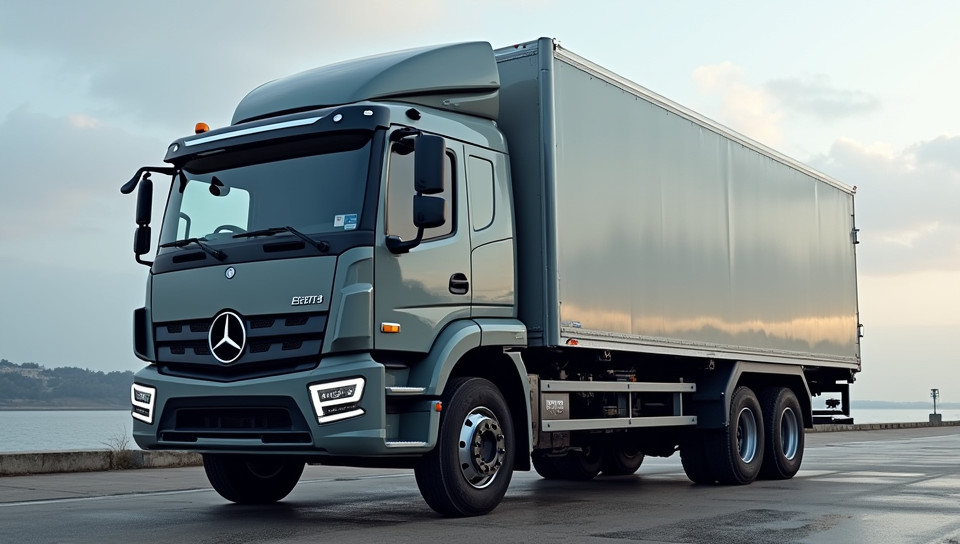Electric trucks often lack heavy-duty capabilities 72%

Electric Trucks: The Heavy-Duty Shortfall
As the world shifts towards electric vehicles, it's no secret that trucks are a crucial part of this transition. With governments and companies investing heavily in e-trucks, it seems like we're on the cusp of a revolution. However, beneath the surface, there lies a concerning issue: electric trucks often lack the heavy-duty capabilities that their diesel-powered counterparts take for granted.
The Rise of Electric Trucks
Electric trucks have been gaining traction in recent years, with companies like Tesla, Rivian, and Volvo announcing plans to enter the market. These vehicles promise lower emissions, reduced operating costs, and improved efficiency. But what about their ability to handle heavy-duty tasks?
- Lack of range and charging infrastructure
- Limited towing capacity
- Higher upfront costs
- Limited availability of heavy-duty electric truck models
The Problem with Heavy-Duty Applications
Heavy-duty trucks are designed to carry massive loads over long distances, often in demanding conditions. They require powerful engines, robust transmissions, and specialized components to handle the rigors of their work. Electric trucks, on the other hand, face significant challenges when it comes to providing this kind of capability.
Current Solutions and Limitations
Several manufacturers have developed electric trucks designed for heavy-duty use, but these vehicles are still relatively rare and often come with significant compromises. For example:
- Tesla's Semi offers impressive range and towing capacity, but its high price point makes it inaccessible to many fleets.
- The Volvo FL Electric has a lower towing capacity than its diesel counterpart, limiting its appeal for heavy-duty applications.
The Future of Heavy-Duty Electric Trucks
While there are challenges to overcome, the potential benefits of electric trucks make them an attractive option for companies looking to reduce their environmental impact. To bridge the gap between electric and diesel-powered trucks, manufacturers will need to develop more capable and efficient batteries, improve charging infrastructure, and design vehicles that can handle heavy-duty tasks without sacrificing performance.
Conclusion
Electric trucks have made significant strides in recent years, but they still lag behind their diesel counterparts when it comes to heavy-duty capabilities. To meet the demands of a rapidly changing market, manufacturers must prioritize innovation and invest in the development of more capable electric truck models. Only then can we truly transition towards a future where electric trucks are the norm.
- Created by: Dylan Romero
- Created at: Aug. 14, 2024, 11:53 p.m.
- ID: 7202




